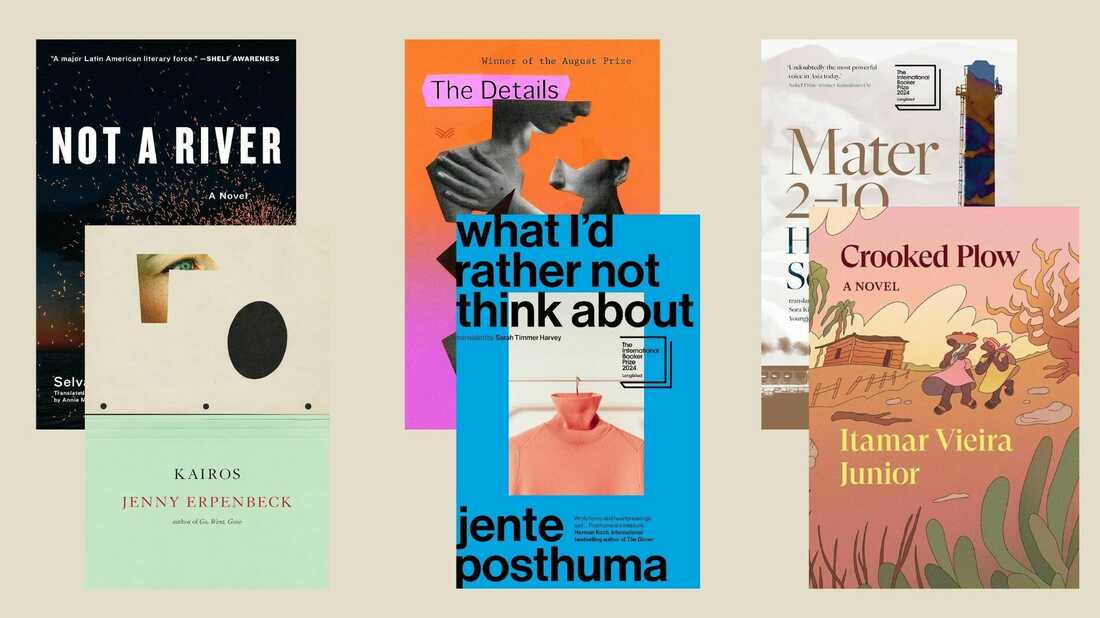Culture
International Booker Prize shortlist for 2024 spans three continents
NPR
NPR
Six languages. Six countries. Three continents. The novels on this year’s International Booker Prize shortlist span cultures, styles and the breadth of human experience.
“Novels carry us to places where we might never set foot and connect us with new sensations and memories,” said Eleanor Wachtel, International Booker Prize 2024 Chair of judges in a statement. “Our shortlist opens onto vast geographies of the mind, often showing lives lived against the backdrop of history or, more precisely, interweaving the intimate and the political in radically original ways.”
Here’s the International Booker Prize 2024 shortlist (the winner will be announced May 21):
Not a River by Selva Almada, translated from Spanish by Annie McDermott
Two men and their dead friend’s teenage son go on a fishing trip. Frustrated after hours wrestling with a hooked stingray, one of them shoots it with a revolver. They hang its corpse at their campsite and let it rot. So begins a tale about masculinity, guilt, desire and outsider suspicion that’s been called “prophetic,” “ghostlike” and “a punch in the gut.”
Kairosby Jenny Erpenbeck, translated from German by Michael Hofmann
Erpenbeck said Kairos is “a private story of a big love and its decay, but it’s also a story of the dissolution of a whole political system.” In a review for NPR, Lily Meyer said Erpenbeck’s Kairos manages “to simultaneously echo and amplify the fissures between generations, and between East and West.”
Crooked Plow by Itamar Viera Junior, translated from Portuguese by Johnny Lorenz
Two sisters are mystified by the powers of a knife they find beneath their grandmother’s bed. With magical and social realism, Viera Junior tells the story of subsistence farmers in Brazil’s poorest region. The youngest author on the shortlist at age 44, Crooked Plow is his debut novel. The Booker Prize judges said it “speaks to the importance of remembering our histories and protecting the land that sustains us.”
Mater 2-10byHwang Sok-yong, translated from Korean by Sora Kim-Russell and Youngjae Josephine Bae
This is Hwang Sok-yong’s ninth book to be translated into English. At 81, he is the oldest author on the shortlist. The Booker jury said Mater 2-10 “vividly depicts the lives of ordinary working Koreans, starting from the Japanese colonial era, continuing through Liberation, and right up to the twenty-first century.”
What I’d Rather Not Think About by Jente Posthuma, translated from Dutch by Sarah Timmer Harvey
The narrator in What I’d Rather Not Think About is a twin whose brother has recently taken his own life. PosthumaThe Telegraph praised the novel for its “utter authenticity” and how Posthuma writes in a “laconic, light-footed and pointed way.”
The Details by la Genberg, translated from Swedish by Kira Josefsson
Genberg said that she began writing The Details, “just as the woman in the novel starts, in a COVID fever in April 2020, when I went to my bookshelf and picked up a random book that fell open in my hands.” A novel about relationships, connection, memory and time, The New York Times writes, “Genberg’s marvelous prose is also a kind of fever, mesmerizing and hot to the touch.”
Winner will be announced next month
The winner of the International Booker Prize 2024 will be announced at a ceremony on May 21 at London’s Tate Modern.
The £50,000 prize money (roughly $63k) will be divided equally between the author and the translator or divided equally between multiple translators. Shortlisted authors and translators will share a prize of £5,000 (roughly $6,300).
The event will be livestreamed on the Booker Prizes’ channels and presented by YouTuber Jack Edwards, who is known as the ‘internet’s resident librarian.’
Author Georgi Gospodinov and translator Angela Rodel won last year’s International Booker Prize for the novel Time Shelter.
This story was edited by Meghan Sullivan.
